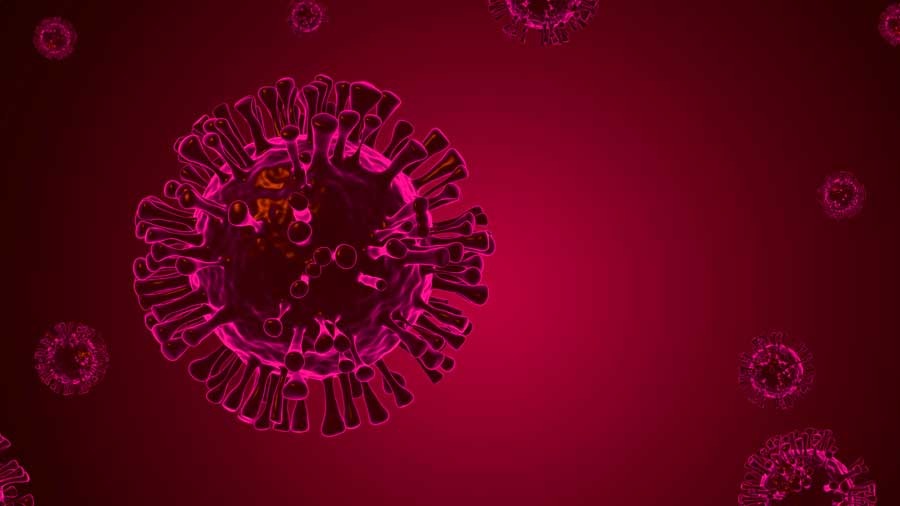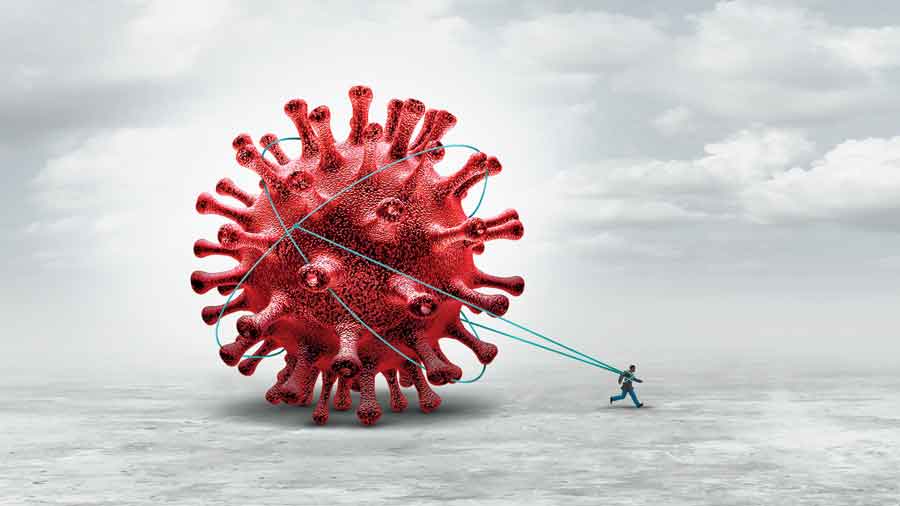Scientists have discovered a new approach for delivering treatments to patients suffering from serious, long-term COVID symptoms.
The team at University of Miami, US, conducted experimental studies on mice and found that placing a peptide 'net' around the spike protein of the virus reduced deaths from organ failure and also improved overall outcomes.
The SARS-CoV-2 virus uses the spike protein to enter and infect the cells.
"Despite the advances in vaccines, a significant percentage of infected patients develop long-term problems of the brain, lungs, heart, liver, or kidneys," said Michael J. Paidas, lead researcher of the study published in the journal Molecular Neurobiology.
"Our laboratory research has focused on preventing the SARS-CoV-2 virus from attaching to the cell and finding a potential therapy for infected individuals fighting the lasting effects of COVID," Paidas said.
Researchers said this is the first study to follow laboratory animals over a long period of time and identify pathological changes to the brain, heart and other organs in mice that would take many years to find in humans.
"We observed pathological changes in multiple organs and blood vessels 12 months after these mice were infected with a coronavirus model," said research assistant professor Arumugam R Jayakumar.
"However, treating the infected mice with a small-molecule synthetic peptide, patented as SPIKENET, prevented the binding of spike protein. That significantly reduced disease progression and pathological changes to the brain, heart, lungs, and other organs," Jayakumar said.
He added that the long-term COVID study results are consistent with the research team's prior study on the acute phase of COVID infection.
While the underlying mechanisms of SARS-CoV-2-induced multi-organ failure and death are largely unknown, the inflammatory response of the immune system can lead to edema, a rapid build-up of fluid in cells damaging tissues and organs, said Paidas.
"Using our mouse model, we found that SPIKENET treatments improved the cellular inflammatory and oxidative stress response in the acute phase of the infection," Paidas said.
"We discovered that SPIKENET also works through a novel mechanism, namely by altering aquaporins, which are critical water channels, present on cells throughout the body," he said.
The researchers found that through these three key mechanisms, SPIKENET reduced edema and resulted in better outcomes.
"We think that SPIKENET offers a one-two punch, making it an attractive therapeutic agent," Paidas said.
"It prevents the virus from entering cells and limits the damage inflicted by the virus, thus restoring organs to a more normal physiologic state," he added.












